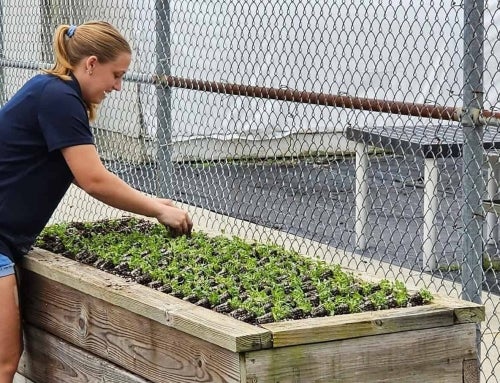One way you can observe National Ag Day is by being an advocate for agriculture and interacting with your elected officials on behalf of agriculture and FFA. After all, elected officials are the leaders who implement change and create legislation in our communities, states and nation.
Follow these 10 steps to advocate successfully.
- Define important issues or challenges agriculture is facing locally, in your state or nationally.
- Research and analyze statistics about agriculture in your area, your state or the nation. Become an expert about the industry.
- Decide who you are trying to influence. Your target audience may be local officials (city council, mayor, school board or school district superintendent), state officials (governor, state board of education or legislators), or federal officials (members of Congress or Senate).
- Determine what you want to accomplish. Maybe you want to ask elected officials for support of agricultural education and FFA. Think about other positive things you would like to see happen.
- Set goals for each of your objectives. How will you reach them? Your goals should be SMART: specific, measurable, attainable, relevant and timely.
- Develop your key message. Outline a set of clear, easy-to-remember talking points. Be prepared for elected officials to ask questions. How will you respond? (If you don’t know an answer, tell them you will find out and get back to them.)
- Work with your advisor to schedule a meeting with your target audience. Learn about the background of the officials you are meeting with, and research what they are responsible for at their job. Follow them on social media. Prepare a leave-behind document with information about agricultural education and FFA.
- Draft an elevator speech (a quick, 30-second pitch that includes key points) to share your message. Practice your speech with your advisor before your meeting.
- When the time is right, execute your plan. Arrive on time. Introduce yourself to the elected officials or staff members. Be confident and stay on topic. Use stories or examples to make a local connection. Ask direct, focused questions. Finally, thank them for their time.
- Reflect on your visit. Immediately after your meeting, write down key things that stood out to you. Quickly follow up with any requests for more information. Send a handwritten thank-you note.
Congratulations! You’ve successfully advocated for agriculture.
For even more info on being an advocate, visit FFA.org/ag-literacy-and-advocacy/.
To celebrate National Ag Day, National FFA will provide virtual webinars on Monday, March 23, and Tuesday, March 24. Monday’s sessions will begin at 1 p.m. EDT and discuss advocating, interacting with government officials, and building an elevator pitch. Tuesday’s sessions will focus on storytelling, identifying audiences, and reviewing the agriculture, food and natural resources value chain.












